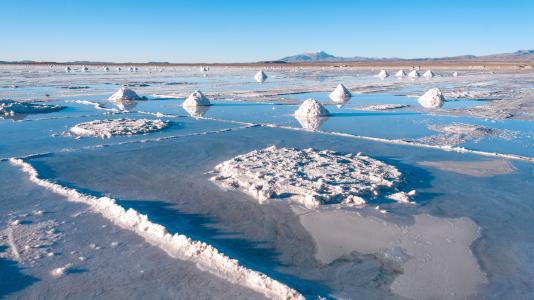| Jun 16, 2023 |
To boost supply chains, scientists are looking at ways to recover valuable materials from water
|
|
(Nanowerk News) For many materials critical to supply chains that will help enable America’s decarbonization transition, resources are limited. Traditional mining is fraught with challenges, so advancing clean energy depends on finding new ways to reliably access critical materials.
|
|
Promoting national security and economic competitiveness will require America’s researchers to find new ways to obtain the materials that we need for many technologies. These include batteries, magnets in electric motors, catalysts, nuclear reactors and other essential carbon-free energy technologies.
|
|
Water represents one underexplored avenue of acquiring these materials. Scientists at the U.S. Department of Energy’s Argonne National Laboratory have recently published a comprehensive review detailing the various mechanisms by which critical materials can be extracted from diverse water streams.
|
 |
| Geothermal brines like the Uyuni Salt Flats in Bolivia provide a valuable source of lithium and other essential materials. (Image: Ksenia Ragozina)
|
|
Different types of water offer different kinds of material resources, said Seth Darling, chief science and technology officer for Argonne’s Advanced Energy Technologies directorate. “The oceans are such a tremendous resource because the total quantities of many valuable and important materials are vast, but they are also highly dilute,” he said. “Wastewater has also been in need of reframing — we want people to see that wastewater is not truly waste, rather, it’s rich with all sorts of valuable stuff.”
|
|
Darling also pointed to groundwater aquifers and geothermal brines as other possible sources of valuable materials. These materials include lithium, which is increasingly in demand for electric vehicle batteries and could be used to help decarbonize our economy. “Lithium is in the ocean and in geothermal brines; you’d extract it differently from these two sources but it’s important to understand which is cheapest, has the smallest environmental impact, and enables secure supply chains,” Darling said. “For many other materials, water is underexplored as a source, and that’s something we’re paying increasingly more attention to.”
|
|
The technologies that Darling and his colleagues are exploring to extract critical materials from different types of water range from the traditional (like membranes) to the innovative (like interfacial solar steam generators).
|
|
Omar Kazi, a Ph.D. student in molecular engineering at the University of Chicago working with Darling, is studying methods to concentrate wastewater streams to recover valuable materials. “Getting rid of the water through evaporation is an energy-intensive and slow process,” Kazi said. “In geothermal brines, it can take years for water to evaporate to be able to recover the lithium that’s contained in them, which creates a huge bottleneck. The question we are asking is ‘how we can make the water evaporate faster?’”
|
|
One way to do that could be through the use of porous photothermal materials, which convert light to heat efficiently. These light absorbers act like a black T-shirt that heats up on a sunny day. That heat is transferred to the water directly at the interface with the surrounding air, significantly accelerating evaporation.
|
|
Overall, Darling noted, Argonne has rich capabilities in supply chain, life cycle and technoeconomic analyses. In addition, the laboratory specializes in the materials, chemistry and process engineering relevant to critical material extraction. This uniquely positions the lab to help achieve a more secure and circular economy of materials, especially when it comes to getting more out of water streams.
|
|
A paper based on the study appeared online in Advanced Materials ("Material Design Strategies for Recovery of Critical Resources from Water").
|

